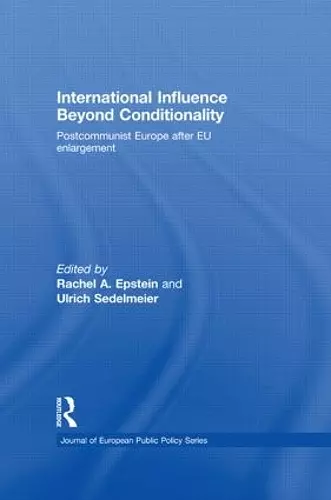International Influence Beyond Conditionality
Postcommunist Europe after EU enlargement
Ulrich Sedelmeier editor Rachel A Epstein editor
Format:Paperback
Publisher:Taylor & Francis Ltd
Published:12th Dec '13
Currently unavailable, and unfortunately no date known when it will be back
This paperback is available in another edition too:
- Hardback£94.99was £94.99(9780415486484)

The European Union’s (EU) membership conditionality has been perceived as a highly effective means of influence on non-member states in the run-up to the 2004 and 2007 enlargements. According to the incentive-based explanation that dominates the literature, conditionality has been particularly effective when the EU offered a credible membership incentive and when governments did not consider the domestic costs of compliance threatening to their hold on power.
This volume challenges much of the existing work on EU enlargement and postcommunist transition, however, by testing the conditionality thesis in the post-accession setting. Whereas a conditionality hypothesis would predict deteriorating compliance among the newest member states, several contributions here actually find the opposite. Enduring compliance among postcommunist states with the acquis, as well as with less formally institutionalized EU preferences for economic liberalization and minority protection, calls into question the role that conditionality plays in eliciting conformity. Simultaneously, support for the conditionality hypothesis in areas such as political party development and EU relations with Turkey and the western Balkans suggests conditionality’s effects vary across countries and issues. As the first study to systematically examine the relationship between international institutions and postcommunist states after enlargement, this volume provides new insights into how external actors exercise their power in domestic politics.
This book was published as a special issue of the Journal of European Public Policy.
ISBN: 9780415845250
Dimensions: unknown
Weight: 249g
172 pages